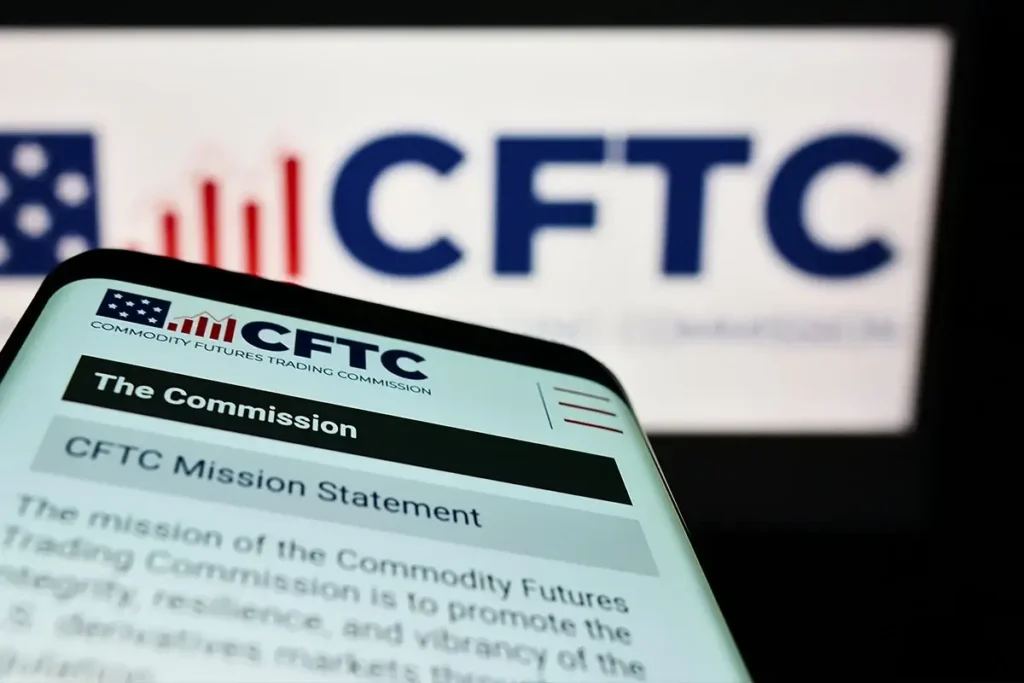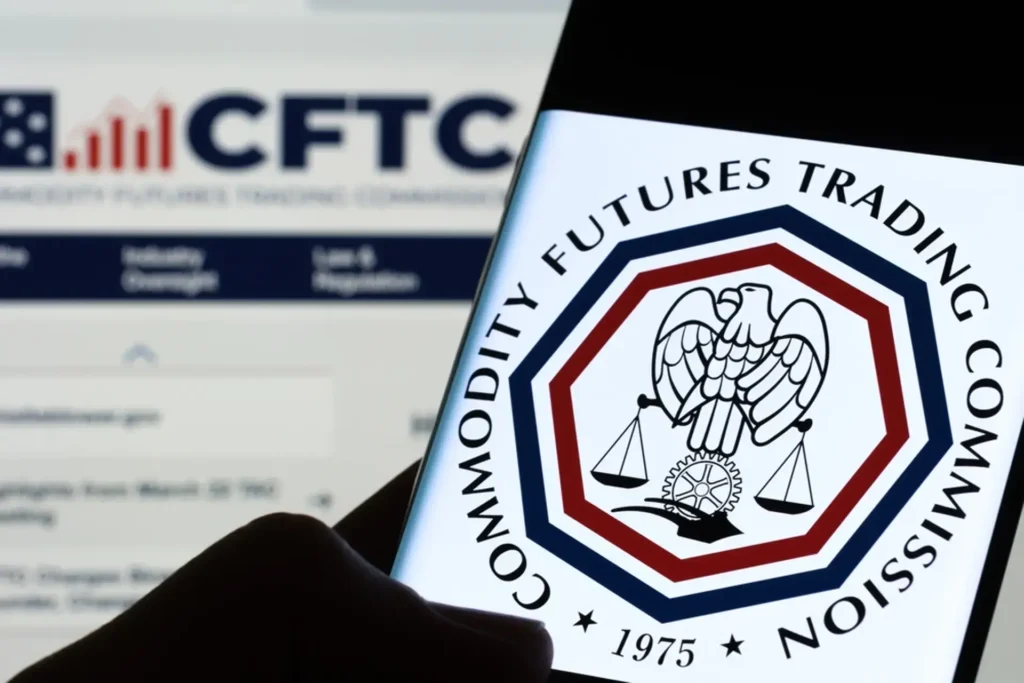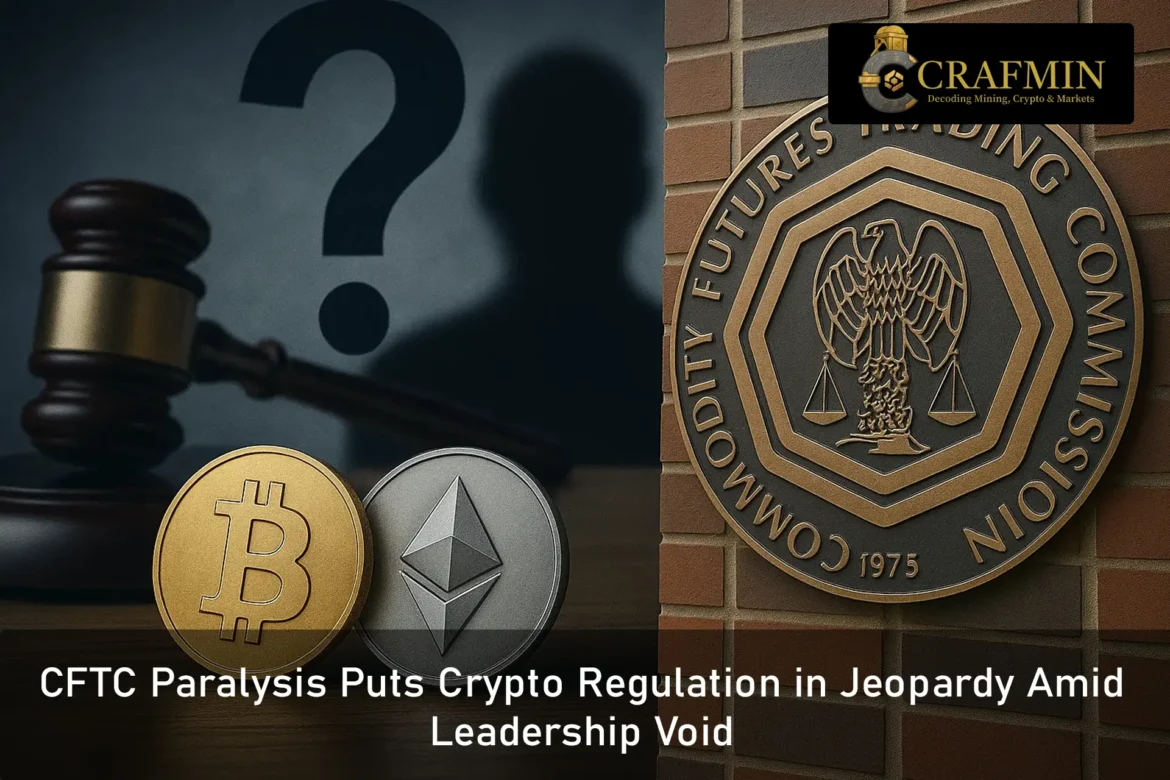In the United States, the push to hand over cryptocurrency regulation to the Commodity Futures Trading Commission (CFTC) is gaining momentum. However, the agency may not be structurally equipped to deliver.
A Regulatory Role Without the Firepower
With the Clarity Act on the table, introduced by US Congressman French Hill, there’s a move to define a new asset class—“digital commodities.” These would enjoy more flexible trading rules on secondary markets and would fall largely under the watch of the CFTC.
This fresh legislative proposal places significant responsibility on the CFTC’s shoulders. But internal disruptions raise real concerns about whether the agency is ready to step into those shoes. At the heart of the matter lies a leadership vacuum and a commission divided right down the middle.
The CFTC, like similar federal agencies, operates with five commissioners. They’re appointed by the President and confirmed by the Senate, and no more than three can be from the same political party. These checks and balances aim to ensure impartiality. At present, however, only four positions are filled, and even that fragile balance is at risk.

Image 1 (Source: CoinCentral)
Leadership on Ice as Nomination Stalls
When Donald Trump took the reins again in January 2025, Democrat Rostin Behnam, then chair of the CFTC, quietly bowed out to make room for the new administration’s pick. This customary move made space for the new administration to appoint its preferred leadership. Brian Quintenz, a previous commissioner with strong ties to the crypto world—including work at a16z Crypto and Kalshi—was nominated by Trump in February to take the top job.
Despite the nomination, the Senate has dragged its feet. Busy dealing with higher-priority items such as the national budget and the GENIUS Stablecoin legislation, Quintenz’s appointment has sat idle. The consequence? A 2–2 party-line stalemate among commissioners, with no majority to approve new measures.
Caroline Pham, a Republican, has been acting as interim chair. While she can handle some administrative duties, regulatory decisions like rule changes or enforcement actions require full commission votes. And in a split house, those powers are stuck in limbo.
This deadlock means the CFTC is hamstrung at a time when it’s being asked to step up. Rulemaking, policy guidance, exemptions, and enforcement actions all demand majority approval—something the current structure cannot deliver.
Crypto Firms Navigate a Lax Landscape
Interestingly, parts of the crypto industry aren’t rushing to see the gridlock resolved. Under the previous Biden administration, businesses complained of regulatory overreach, labelling the approach as “regulation by enforcement”. Now, with the agency more or less inactive, some see this pause as a break from a heavy hand.
One standout case that really lifts the curtain is how prediction markets have been making waves in recent months. These are speculative platforms where people place bets on the outcomes of events—from elections to sports. Under current laws, these are regulated by the CFTC as “event contracts”. In the past, the agency had taken a conservative stance, especially around sensitive areas like political outcomes or entertainment.
That changed late last year when Kalshi, a prediction market operator, successfully challenged the CFTC in court. The result was a green light for election-based markets. The precedent encouraged others to test the waters.
By December 2024, Crypto.com moved ahead with Super Bowl-related prediction markets, relying on a process called self-certification. The Biden-era CFTC objected, but under Trump’s administration, the new commission allowed the platform to continue by taking no action at all. That non-response effectively created space for federally regulated sports wagering.
Though not all decisions are contentious, party politics still play a role. In a rare crossing of party lines, Christy Goldsmith Romero, a Democrat, threw her lot in with Republican counterparts, backing the move to pull the plug on the CFTC’s appeal in the Kalshi case. But when opposing views arise, the commission is frozen. That’s the cost of the deadlock.

Image 2: (Source: bloomingbit)
More Departures Threaten Stability
As Quintenz prepared for a Senate hearing scheduled on 10 June, things at the commission took another hit. Summer Mersinger and Christy Goldsmith Romero, representing opposite sides of the political fence, both decided to call it a day and stepped away from their roles at the CFTC. That leaves the agency even more exposed.
While the numbers are technically still balanced, the resignations foreshadow deeper instability. Caroline Pham, who’s been steering the ship in an acting capacity, has already announced she’ll leave once Quintenz is confirmed. If she follows through, and others remain unseated, the CFTC could soon be down to just one commissioner.
Read Also: CFTC Stands Firm on Crypto Rules Despite Trump’s Support
That scenario would cripple the agency’s capacity to do much of anything. Without a quorum, not only can’t the commission regulate, but it also can’t enforce the rules already in place. That’s a worrying place to be, especially with the Clarity Act still under review.

